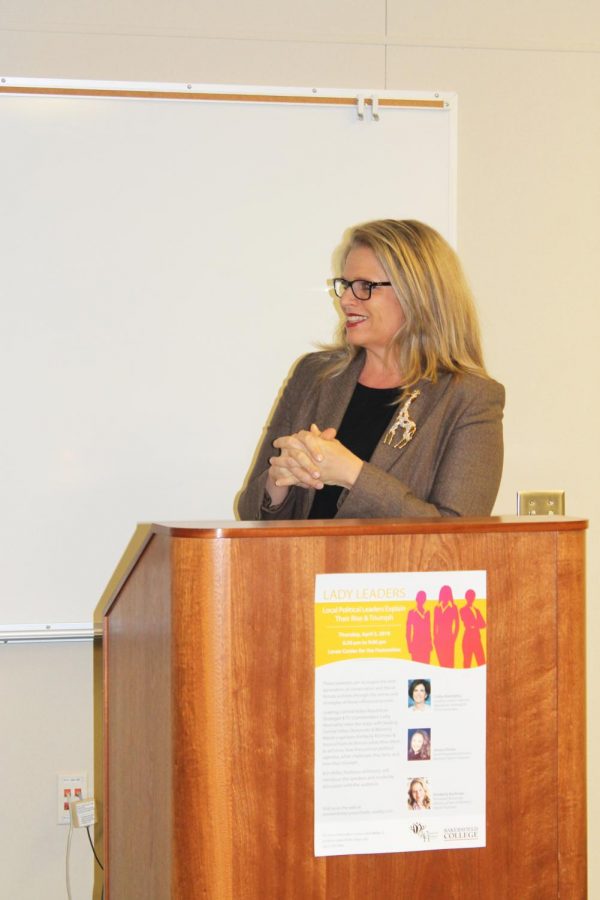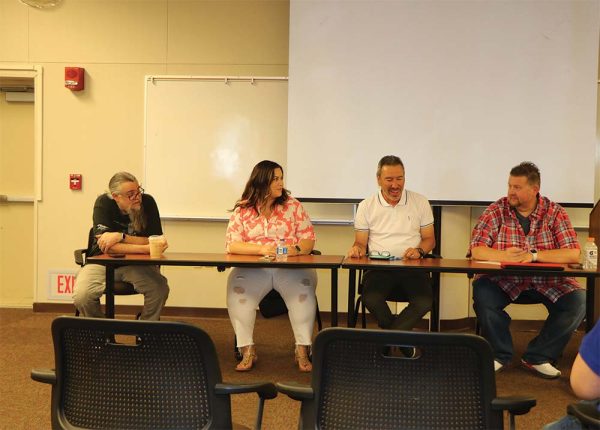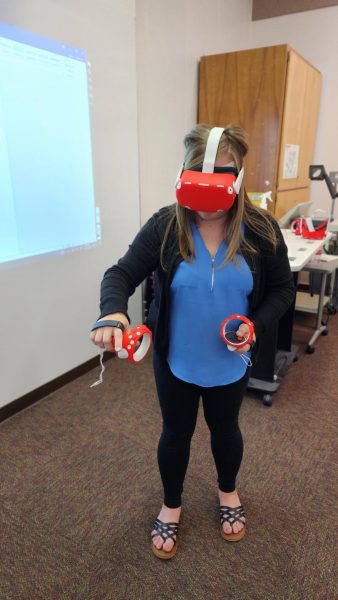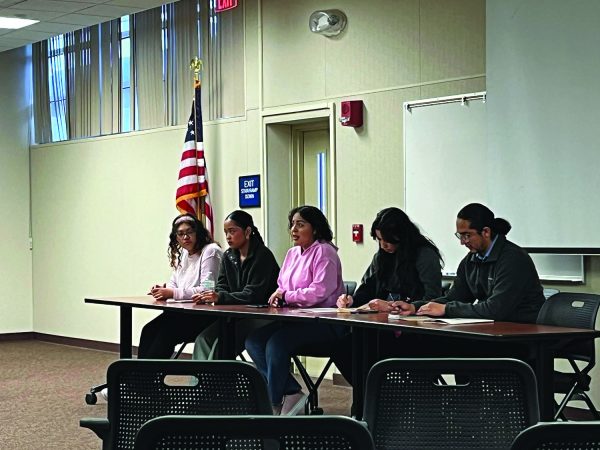Levan Center for the Humanities hosts a panel discussion on women in politics
Central Valley Democrat and Co-Executive Director of the Kern County Women’s March, Kimberly Kirchmer, describes the impact that working with other women in politics has had on her perception of self.
April 15, 2018
Bakersfield College’s Levan Center for the Humanities hosted a panel discussion on women in politics on Thursday, April 5. The event was organized by Women’s History and More (WHAM) and it closed out a month-long celebration of women’s history at Bakersfield College. The theme of this year’s Women’s History Month is “Women’s Voices: Narratives and Political Activism,” according to WHAM.
Thursday’s panel included Cathy Abernathy, leading Central Valley Republican strategist, Kimberly Kirchmer, president of the Democratic Women of Kern and co-executive director of the Kern County Women’s March, and Jessica Flores, local activist and Women’s March organizer. The panel was moderated by Erin Miller, a professor of history at Bakersfield College.
Following an introduction by Miller, Abernathy took to the podium and addressed the audience. Abernathy recounted her decades-long career in politics, outlining the dozens of positions she has held throughout the years.
“None of my accomplishments happened easily. I got married when I was 30, I had kids later. Some people are able to start families earlier, but it makes your career path more difficult. By the time I was 35, I had a stable job and had a lot more leeway to do things…You have to be there and you have to put in the work,” said Abernathy.
Abernathy went on to describe what she believed were the key components of her success in working in the political sphere.
“Stay in the business. Work in congressional offices. You have to go out and build groups of supporters. You have to find out what voters care about and if you care about the same things,” said Abernathy.
Flores addressed the panel after a short intermission.
“In terms of what inspired me to become an activist, I don’t think anyone wakes up one morning and thinks ‘I want to become an activist today,’” said Flores. “It was more of a slow waking up to the realization that there is so much going on in the world, in our country, and our community, and that really lit a fire inside of me. I knew I had to do something, anything to make a difference.”
Flores went on to describe her own journey to becoming an activist, from participating in high school beauty pageants to getting her degree in Gender and Women’s Studies.
“Even though my passion for activism began when I was in college, it wasn’t until the 2016 election that I started to make real, concrete connections in the local community and engaging in more traditional forms of activism.”
Kirchmer was the final panelist to address the audience. Like the panelists before her, Kirchmer explained her long journey to becoming involved in Kern County politics. Kirchmer detailed how her deeply held religious beliefs led her to eventually become the president of the Democratic Women of Kern.
“My Mennonite routes are what lead me to become an activist,” said Kirchmer.
She went on to describe how she longed for “intergenerational relationships with other women” and how she found a community of supportive women in the Democratic Women of Kern.
“These women welcomed me in the way that I wished my grandmothers and aunties would have,” said Kirchmer.
Kirchmer explained that like Flores, the 2016 presidential election inspired her to engage in politics again.
“As a survivor of rape and repeated sexual assaults, I was violently triggered by the thought of a sexual predator in office,” said Kirchmer, in reference to sexually explicit remarks made by President Trump.
After the panelists’ individual speeches, audience members asked the panelists about their chosen career paths.
“There’s a simple strategy [to getting involved in politics] you show up. Even when you’re tired and it’s difficult, you continue to show up. If you keep showing up, you’ll make a difference,” said Kirchmer.











